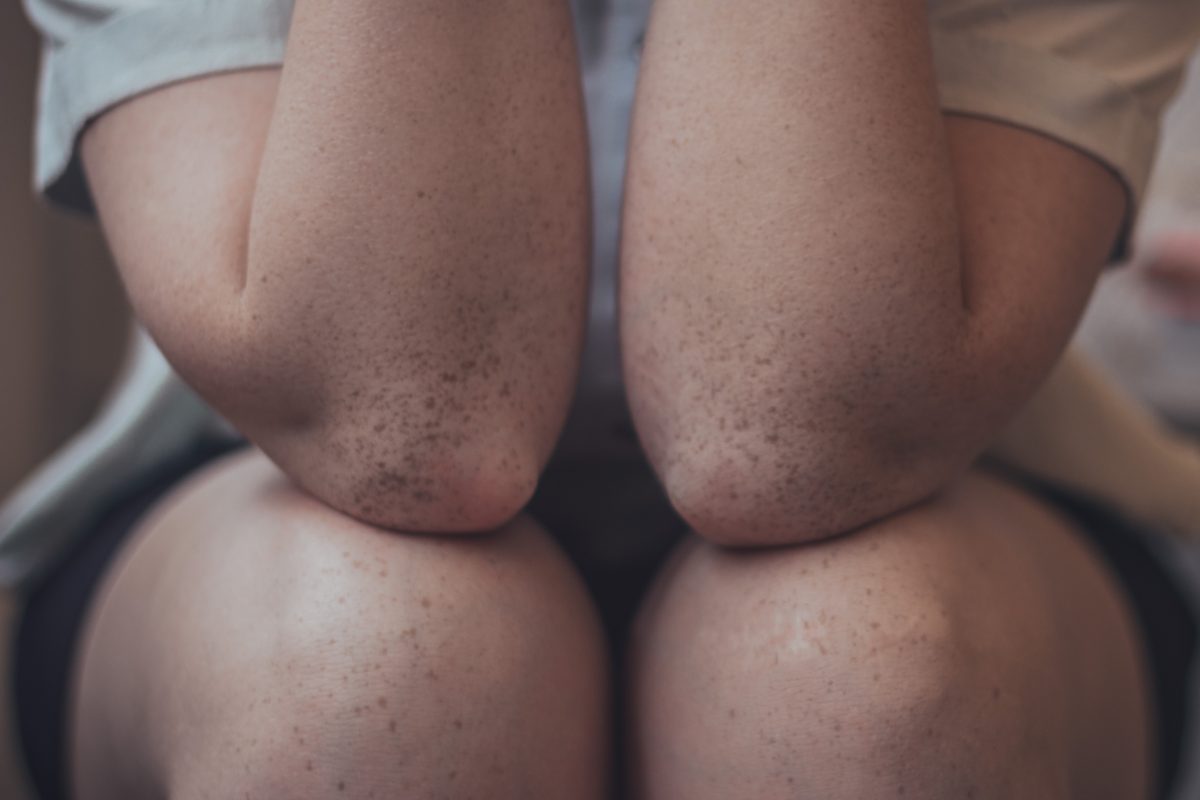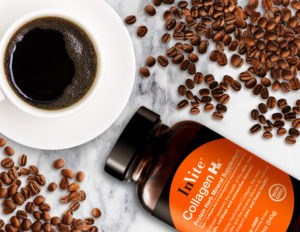Here’s What You Need To Know About Collagen

Photo by Lucaxx Freire on Unsplash
Collagen is one of the most popular buzzwords in the health and nutrition world today. But what is Collagen and what are its benefits? We break down everything you need to know, from skin health to bone health and everything in between!
What is Collagen?
Collagen is the most abundant protein in our body and is the most important element in our skin; 70% of it is made of Collagen! But the older we get, the less our bodies are able to naturally produce it. According to Nicole Crane, BS, NTP, our skin loses Collagen at a rate of 1.5% per year, starting in our late 20’s. This is important, because by the time we hit 60 years old we’ve lost half of our skin’s Collagen content. This leads to wrinkles, sagging skin and a lack of that youthful glow we know and love!
Have you tried adding Collagen to your Coffee? It’s delicious and nutritious!
Your skin isn’t the only part of the body that Collagen makes up. Ligaments and tendons are connective tissue that are attached to bones and muscles, holding them together and allowing them to be flexible. These tissues – bones, ligaments, tendon’s and skeletal muscles – are made up of proteins. Ninety percent of the organic mass of your bone is made out of Collagen. Without an abundant amount in these tissues, your joints will not be as flexible and bone may lose their density.
Beauty comes from within
Skin Health

The aging of skin takes place in two phases; the first is brought on by natural aging as you grow older, which also effects your organs. This is called Intrinsic skin aging. Extrinsic skin aging is the aging of skin by external factors like exposure to the sun, pollution, bad sleeping patters, or nutrition.
Once your body begins to lose its high collagen content (by the time you reach 25!), you’ll begin to see signs of aging skin. This includes:
- Fine lines and wrinkles
- Poor skin elasticity
- Cracks and tears
- Dry skin
- Dull skin tone
Obviously you cannot stop your body and skin from naturally aging. However, numerous studies have shown there are ways to counteract the effects brought on by these external factors. This is because there is a major link between nutrition and skin health. According to the journal DermatoEndocrinology, “The best prevention strategy against the harmful action of free radicals is a well regulated lifestyle (caloric restriction, body care and physical exercise for body), with low stress conditions and a balanced nutritional diet, including anti-oxidative rich food.”
Some examples of anti-oxidative rich foods include red bell peppers, tomatoes, salmon, sweet potato, turkey, eggs, and seeds (sunflower).
Nails

Your nails are more than just your most colorful accessory. Your cuticles, though normally cut by manicurists, are actually there to protect from infection, according to dermatologist Jessica Krant, M.D. “Too much cuticle clipping or picking opens the protective barrier and allows moisture and bacteria into your body.” Your nails are also made of hard keratin, a protective protein, similar to hair.
One of the easiest ways to keep an eye on your health, according to numerous medical doctors and dermatologists, is actually by looking at your nails. Changes to their shape, color, thickness and the color of the nail bed can actually be signs of issues you didn’t know you had.
Weak nails can be caused by your diet, aging and even nail polish. Be sure to eat high-protein foods like poultry, fish, beef, pork and spinach to keep your nails healthy and strong.
Hair

As mentioned above, your hair is made up of mostly keratin, but it also contains melanin and small amounts of vitamins, zinc and other metals. The secret to smooth, thick, shiny hair can’t be found at a salon – it’s all in your diet. Eating a variety of healthy foods can give you the hair you’ve been looking for and prevent deficiencies that can cause your hair to look dull, flat, and lacking shine. For healthy hair, be sure to include healthy levels of iron, zinc, vitamin D, protein, omega-3 fatty acids, and biotin in your diet.
Bone & Joint Health

Once you begin to lose healthy levels of Collagen in your body, you’ll feel it in your joints and your bones will be impacted, as well. Collagen is needed for the repair and support the connective and structural tissues in your body. The bone matrix – the organic part of our bones that looks like a spider web – is filled with Calcium and Collagen. According to Scientific Director and Pharmacist, Jerry Hickey, R.Ph, “Collagen helps to lay the groundwork for your bones and for your body. If you’re going to build a house, you can’t just put up a roof and a floor. You’ve got to frame out the house. Collagen is the frame for your bones.”
Choosing the right Collagen for you

Collagen is not naturally found in foods. But, as mentioned above, there are many foods that contain the nutrients needed to form Collagen. However, if you’re not a fan of salmon, leafy-greens, citrus, eggs, or seeds or are having trouble including optimal levels into your daily diet, collagen supplementation is available. Here’s what you need to look for –
Collagen is a large molecule, so many of the powder supplements on the market will not be absorbed by your body. Be sure to look for a hydrolyzed form of collagen. Hydrolyzed Collagen is reduced in size, so it is easier for your body to absorb. You’ll want to find a non-GMO nutritional supplement that follows strict cGMP, current Good Manufacturing Practices. A reputable, high-quality source of Collagen, Peptan B-5000™, has been used in numerous clinical studies for the skin, bone, muscle and joint health. A high-quality collagen supplement can be easily mixed in your favorite beverages, in yogurt, or while your baking!
Questions about Collagen! Leave us a comment to join in the conversation about this very important superfood!